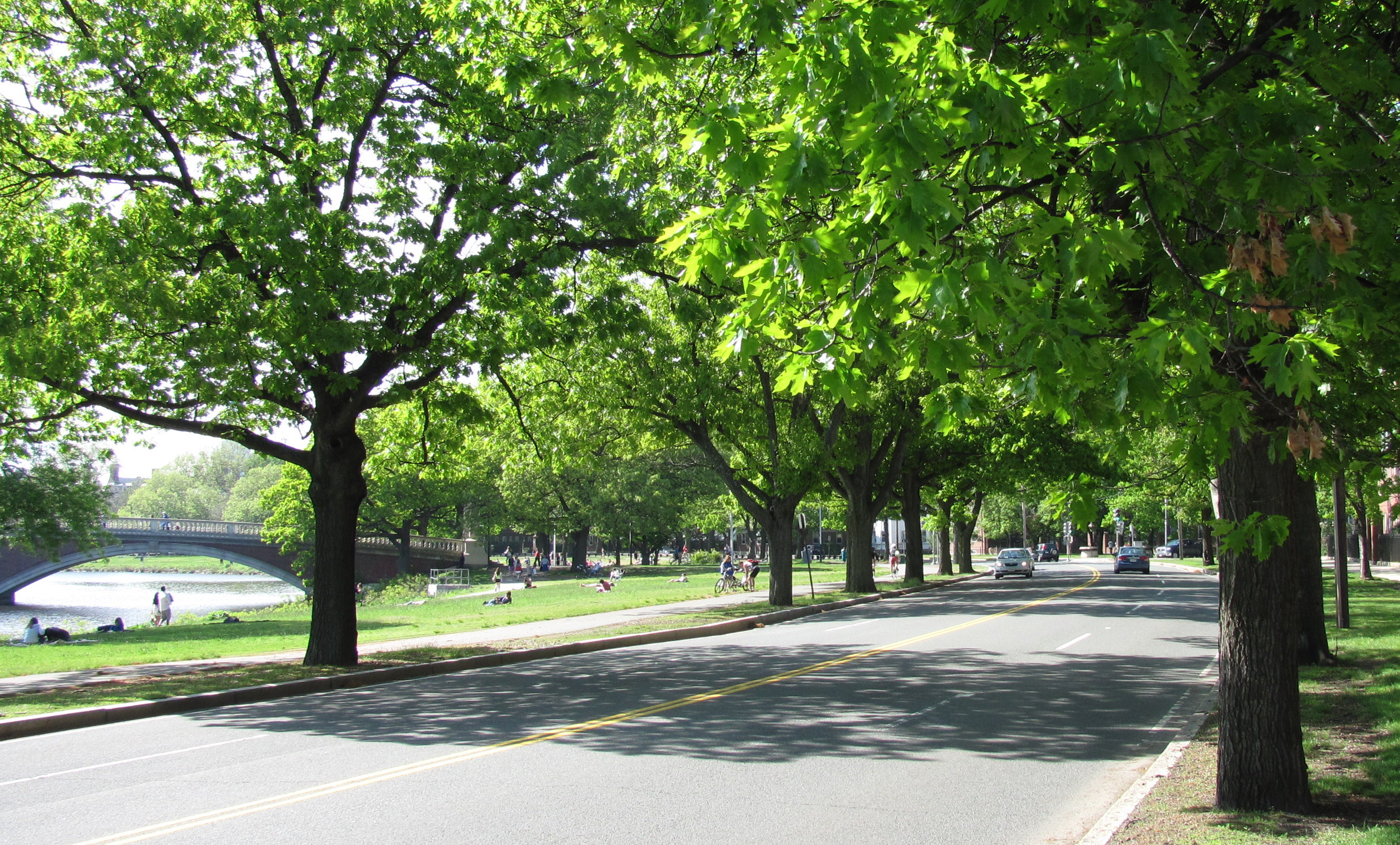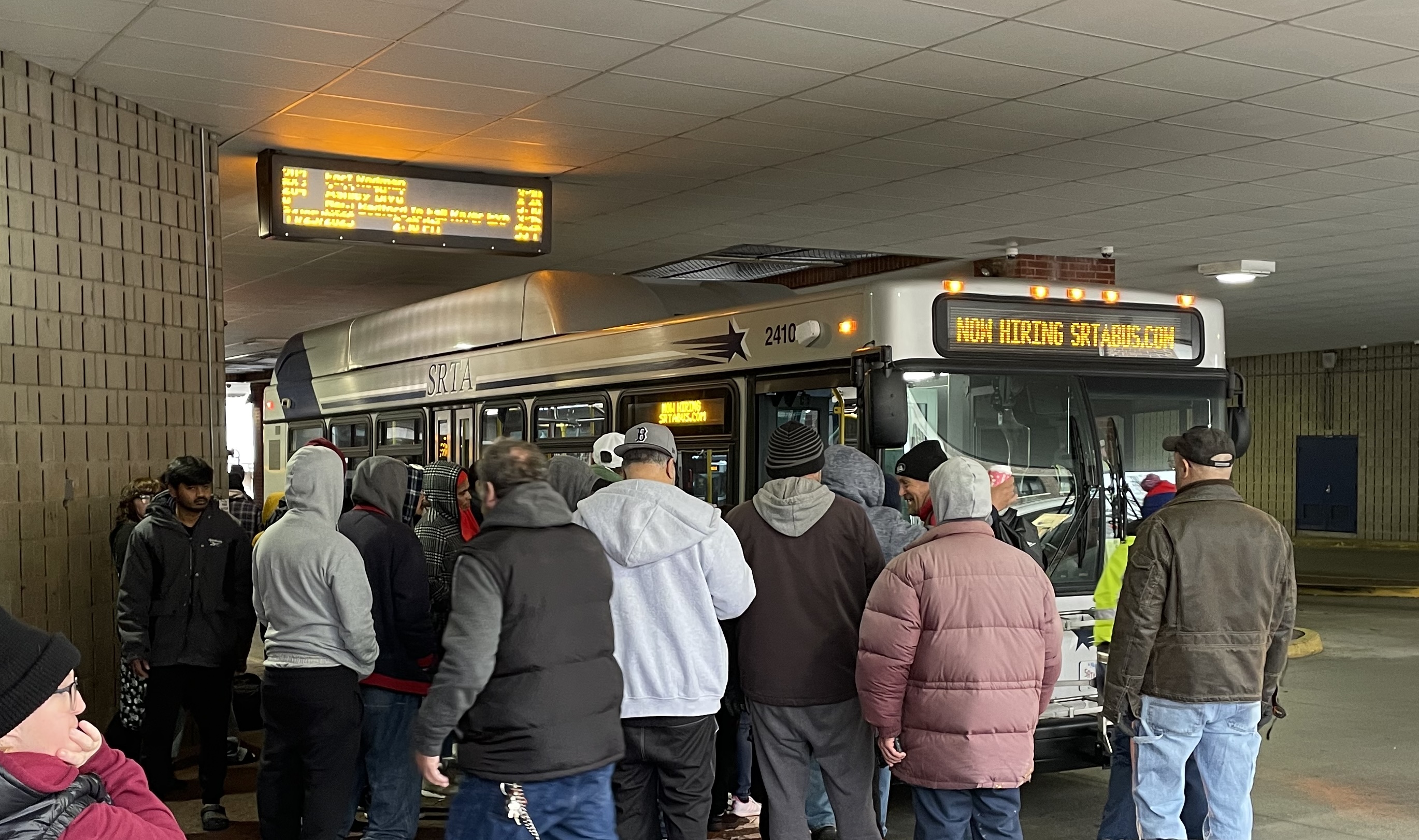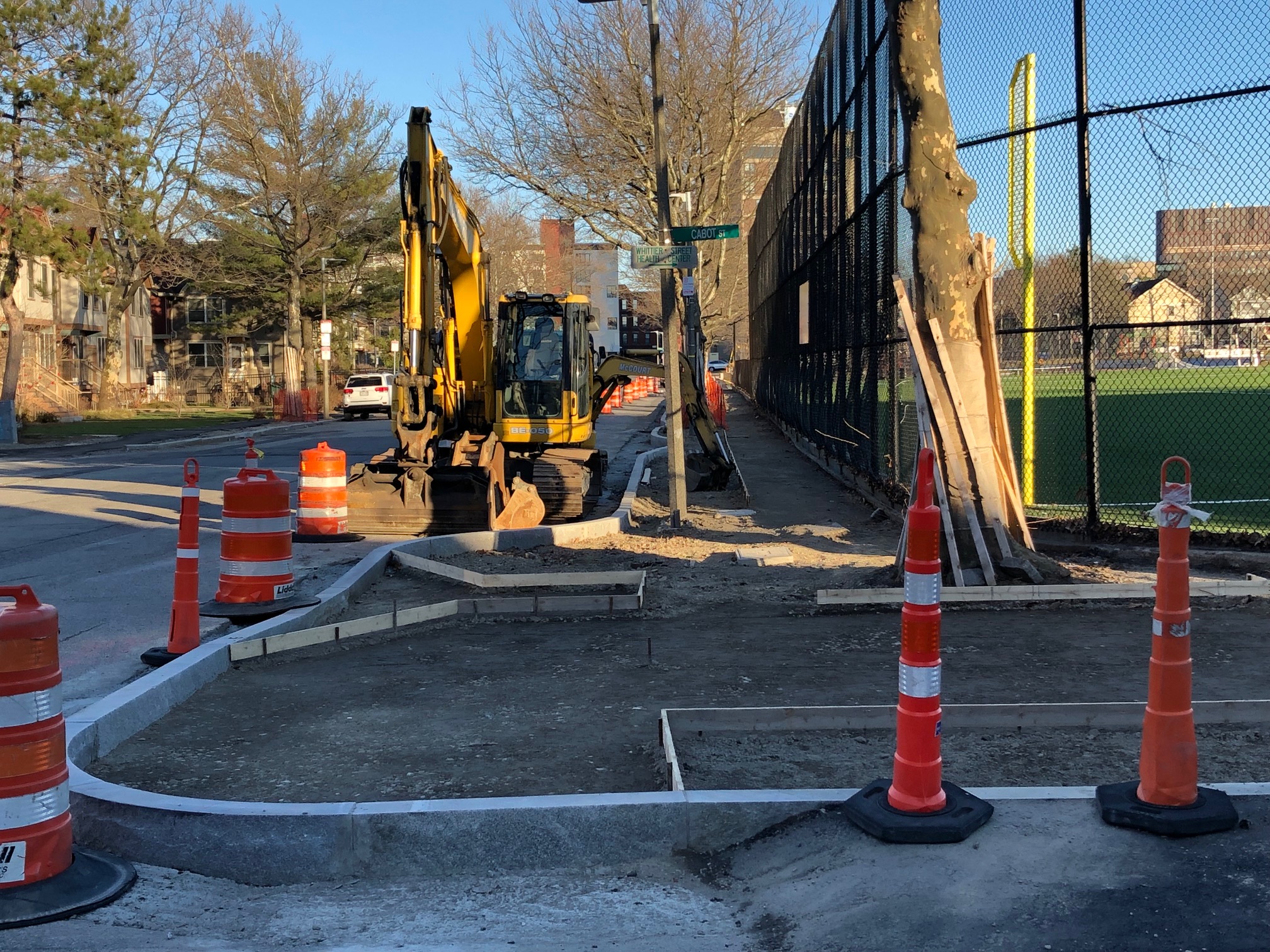On Monday evening, the Cambridge City Council (with most councilors calling in to participate by teleconference) discussed two policy orders that could give people walking and bicycling more space during the COVID-19 pandemic by closing city streets to car traffic.
One order requested that the City Manager "confer with the Director of Traffic, Parking, and Transportation on streets in each neighborhood that could be closed to all non-essential traffic for the duration of the Health Emergency."
A second order made a similar request for City Hall to work with the state's Department of Conservation and Recreation (DCR) to restrict car traffic from Memorial Drive, the four-lane highway that monopolizes Cambridge's riverfront and squeezes bikes and joggers onto a narrow path on the river's embankment.
Memorial Drive is already closed to car traffic on Sunday afternoons from April through November to give people more space to recreate on the city's riverfront.
If the orders are adopted, Cambridge would join several other cities, including New York, Philadelphia, Washington, D.C., Calgary, and Minneapolis, that have closed streets to cars this spring in order to give cooped-up residents more space to travel safely on foot or by bike.
At Monday's meeting, both policy resolutions seemed to have support from a majority of the City Council's eight members, but action on the two items was postponed after Councilor E. Denise Simmons, who expressed opposition, maneuvered to table the agenda item until next week's meeting.
Councilor Patricia Nolan, a co-sponsor of both orders, said that "it's important that we think about creative ways to keep people active while continuing to adhere to the social distancing guidelines that the experts have recommended, and that's where this order comes from. Exercise along with access to sunlight and fresh air are vital components of public health, especially for the youth in this city."
Nolan noted that Cambridge residents had lost their access to after-school programs and playgrounds. Over the weekend, the trustees of the Mount Auburn Cemetery also announced that they were closing their gates to visitors out of concern over the COVID-19 pandemic.
"The parks with the most contiguous space – Fresh Pond, Danehy, Riverbend Park and the Minuteman bike path – have become extremely crowded when the sun is out, with narrow paths that do not allow six feet of separation. There are also multiple neighborhoods in Cambridge that are not within walking distance of those parks," said Nolan.
Other councilors in support of the orders noted that many Cambridge residents are already walking in middle of local streets in order to distance themselves from other walkers. Vice Mayor Alanna Mallon observed that "the sidewalks have become very difficult to navigate safely, and the streets are relatively empty."
But a minority of councilors expressed fears that exercise in the era of COVID-19 would be even more dangerous than the cars speeding down Cambridge's streets.
"The weather is getting warmer, and as runners, who are pretty fast, and now people are going to be perspiring, and as they go by and... pass some of the seniors, you know, there's a potential that some of the people are going to be put at risk," Councilor Timothy J. Toomey, Jr. said.
"We can't on the one hand say 'shelter in place' and then encourage people to go out in the streets," argued Councilor Simmons.
Simmons effectively ended the debate on both policy orders by leveraging her "charter rights" – a maneuver by which Councilors can table an agenda item until the next Council meeting.
That will move an expected vote to both policy orders to the next Cambridge City Council meeting, scheduled for next Monday, April 6.






